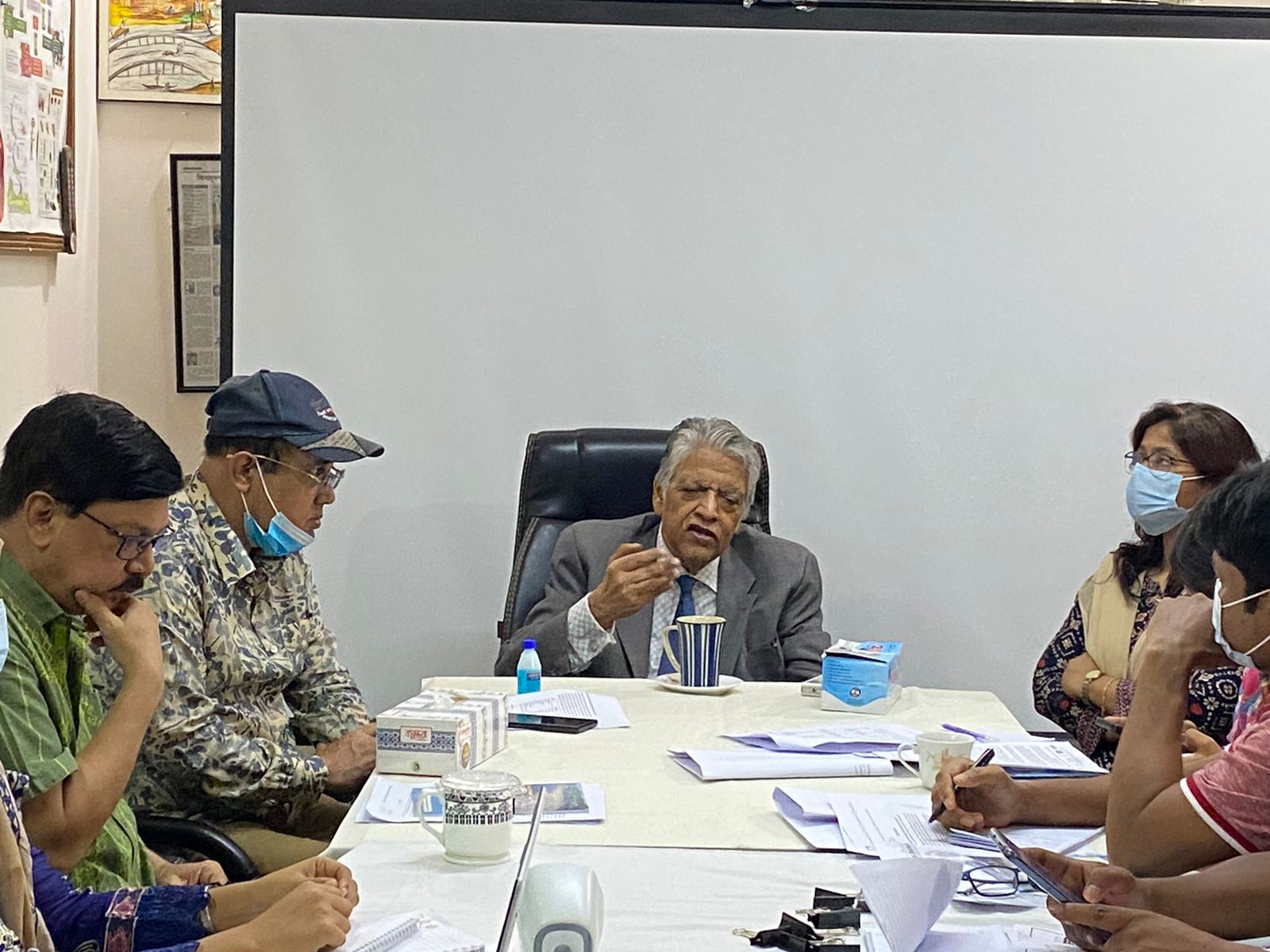Plastic Sachet Creates Huge Environmental Destruction!

1.06 million tons of single-use plastic waste are produced in Bangladesh
Dhaka 2 July 2022: Bangladesh produces 192,104 tons of sachet wastes per year which indicates 129 million sachets are used by Bangladeshi people on daily basis. 1.06 million tons of single-use plastic waste have been produced in Bangladesh in the years 2021-22 (June 21-May 22). This information was revealed in the report titled “Plastic Sachet: Small Packet with Huge Environment Destruction”, launched by Environment and Social Development Organization ESDO today through a media roundtable.
This study identified the current situation of thrown-away plastic sachets or mini-packs in Bangladesh to have a better understanding of the general perception of plastic sachet usage. According to ESDO’s research, these sachet products are divided into four categories, such as food sachets (40%), medicine (8%), cosmetics (24%), and stationaries. Here, tomato sauce, juice, and powdered drinks like milk, chips, coffee, etc are food sachets. Saline packs and medicine strips are medicine sachets. Shampoo and conditioners, toothpaste, and mouth freshener are categorized as cosmetic sachets. Cooking ingredients (7%) include in the masala packs. We also find out about the sachet products frequently purchased by Bangladeshi consumers (2375 respondents in Dhaka and Rangpur). Shampoo/conditioners (69%) were most frequently purchased, followed by saline packs (50%), instant drinking powder (30%), and many others. These results indicated that shampoo and conditioner are preferable as sachet products for the users.
From a previous study of ESDO in 2021, it was found that in Dhaka city, the total collected single-use plastic waste was 60.95 Kg, whereas multilayer packaging was 12.65 Kg (20% of total waste). Among multilayer packaging, sachets consisted of 10% of the multilayer packaging waste and 2.15% of the total single-used plastic waste. This included 14% of sachets of sauce, 57% shampoo sachet, 19.4% saline packet, 6.6% coffee sachet, and 3% tea sachet.
A new study, conducted by researchers at McGill University in Montreal, found a single plastic-based tea bag releases approximately, 11.6 billion microplastic particles and 3.1 billion nano plastics (even smaller particles) into your mug.
Syed Marghub Murshed, Former Secretary of Government of people’s republic of Bangladesh and Chairperson of ESDO said “Plastic mini packets are hazardous to the environment. They are small in size but their impacts are huge on the environment.” He requested the government to strictly implement existing regulatory restrictions on the use of single-use plastic products, especially sachets.
Md. Mokhlesur Rahman, Additional IGP (Rtd.), Bangladesh, and ESDO’s Technical Advisor said that at present people are too much dependent on mini packets. So, more awareness needs to be created among the mass people so that people stop using these mini packets. Also, the producers need to stop producing these sachets and switch to the refill system.
Dr. Shahriar Hossain, Secretary General of ESDO and also the team leader of the study emphasized the refill system. “To end single-use plastic pollution, we need to move back to the time when there were no sachets available in the market and the people used the refill system for shopping. We need a higher tax on single-use plastic products including its’ raw material, production, manufacturing, and distribution” he stated.
Ms. Siddika Sultana, executive director of ESDO, voiced her concern about this issue and urged the government to promote affordable alternatives to plastic sachets and implement a legal framework. She said that United Nations Environmental Assembly (UNEA5.2) has already taken the decision to form an intergovernmental committee to discuss and finalize the legally binding Plastics Convention by 2024. 175 countries including Bangladesh have agreed to this Global Plastic Treaty. So, we need to make ourselves prepare for this and the first step should be banning single-use plastic products nationwide.
ESDO is working relentlessly to ensure biological diversity since its formation in 1990. It is the pioneer organization that initiated the anti-polythene campaign in 1990 which later resulted in a complete ban of polythene shopping bags throughout Bangladesh in 2002. Since then, ESDO has been advocating continuously for the complete ban of Single-use Plastic. As a result, the High Court of Bangladesh ordered the authorities concerned to prepare the ground for banning single-use plastics in coastal areas of the country in 2021. Later in a hearing on 10th February 2021, the High Court of Bangladesh ordered the concerned authorities to phase out Single-use plastic products within 31 December 2022 from the coastal area. Following the High Court’s order, the Ministry of Environment, Forests, and Climate Change have issued a gadget instructing all concerned to completely stop the use of single-use plastic from 12 coastal districts of Bangladesh by 2023.
For more information please contact:
Santona Khatun
Associate Program Officer – ESDO
Email: info@esdo.org
santona@esdo.org ss
Mobile: +8801726053420


